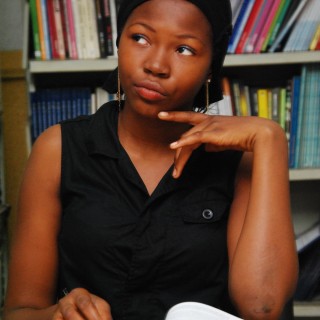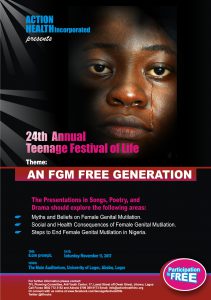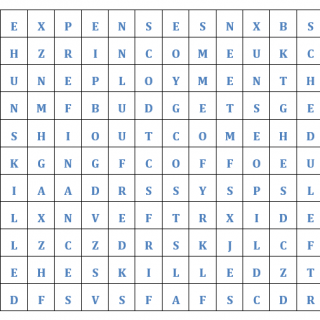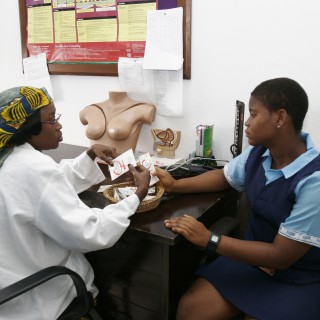Excerpts from an article by ‘Nike O. Esiet, AHI Project Director,
published in the Guardian of May 28, 1996
As the world marks the 1996 International day for Action for Women’s Health, teenage girls in Nigeria continue to account for 80% of the cases of complications arising from unsafe induced abortions treated in Nigerian hospitals annually, according to figures from the Nigerian Country report for the International Conference on Population and Development (ICPD) in Cairo.
Data from the study by Dr. Sola Odujinrin of the College of Medicine, University of Lagos, shows that one out of every four sexually active teenage girls has procured at least one abortion and more than half of these procedures are carried out by non-professional providers. This growing trend in unsafe induced abortion has led to researchers to describe the phenomenon as a school girls’ problem. In fact, complications arising from unsafe induced abortion is the leading cause of death among adolescent schoolgirls in the country today.
It should not surprise anyone that teenage girls continue to resort to unsafe induced abortions. Apart from poverty, teenage pregnancy is the leading single factor that adversely affects female education in Nigeria. Once the school authorities find out their condition, pregnant girls are immediately expelled from school; and even when they muster enough courage to return after child birth, their parents either refuse to continue funding their schooling or force them to marry.
Unfortunately, whenever I suggest that in the face of problems like these, we need more honest discussion about sexuality with our young people; many adults accuse me if wanting to corrupt young girls. This always leaves me perplexed because, I do not know the girls they are referring to. If they mean the innocent girls who stain the bed sheets with blood spots on their wedding night, those girls are fast becoming a thing of the past. The fact is that many girls today never make it to their husband’s homes as virgins. As a nation, we no longer pride virginity as a virtue, we only pay lip service to it – because if we do, how do we explain the fact that most parents want proof in form of a sprouting abdomen before they can approve of their son’s marriage to any girl. They want to be sure that she has not lost her womb to a back street abortionist, and can bear them healthy, bouncing babies, preferably males.
The same adults who refuse to do that which needs to be done, and continue to pretend that adolescent sexuality does not exist, are the one who daily exploit the young girls either as “sugar daddies’ or harass them into exchanging sexual favours for good grades in school. Young girls sent out to hawk oranges and groundnuts, the total worth of which is not more than N100, return home with larger amount of money. Instead of questioning them about the source of the money, their parents praise them for such good fortune.
It is so unfortunate that whenever the call for sexuality education is made, it raises hot debates about how it will be promote increased sexuality among young people. Many adults are quick to ask, “If we were able to cope without getting sexuality education, why can’t young people do the same?” they conveniently forget that many of the pressures that young people have to face today were non-existent in their own days. Teachers were morally upright and did not take advantage of girls left in their care, communities pulled resources to ensure that their children could cover the cost of acquiring formal education, scholarships abounded and if a young person had no choice but to pay for his/her education – job opportunities were plenteous, children reached physical maturity later and marry earlier so sexual activity was inevitably within the context of marriage. The influence of social media was not pervasive as it is of today, where sex is glamorised to such extent that the content of most adverts in the prints and electronic media have heavy sexual undertones even for products as innocent as soap and toothpaste. The music industry too, seems to have learnt that sex sells so, many artists have gone ahead to perfect the art of using music to draw attention to the genitalia with the aim of arousing sexual feelings. This is the kind of environment in which young people are expected to thrive and succeed even when we have left them without the skills to decipher and cope with these myriad of pressures and experiences.
It is gladdening to know that the National Policy on Adolescent Health has recently being approved by the National Council on Health especially as this policy acknowledges the importance of improved reproductive and sexual health among the nation’s youths.
Beyond this, one calls on government to carry out all agreements that were signed at the World Conference of Cairo in 1994 and Beijing in 1995. The actions agreed upon for sexual and reproductive health education at the age of Fourth World Conference on Women in Para. 85 (1) states: Encourage with the guidance and support of their parents and in cooperation with educational staff and institutions, the elaboration of educational programmes for girls and boys taking account of the importance of such education and services to avoid unwanted pregnancy, the spread of sexually transmitted diseases/AIDS, sexual violence and abuse. With regards to access to services, the International Conference on Population and Development in para. 7:8 states: Innovative programmes must be developed to make information, counselling and services for reproductive health accessible to adolescents.
Contrary to popular opinion, the 1993 World Health Organization study on “The Effects of Sexuality Education on Young People’s Sexual Behaviour” provides overwhelming statistics to show that, “There is no evidence to support the contention that sex education in school leads to earlier or increased sexuality education addresses the biological, psychological and spiritual dimensions of our being, including the skills to communicate effectively and make responsible decisions. Sexuality education involves acquiring information and forming attitudes, beliefs and values about one’s identity, relationships and intimacy. It includes sexual development, reproductive health, interpersonal relationships, affection, and intimacy. It includes sexual development, reproductive health, interpersonal relationships, affection, intimacy, body image and gender roles.
As parents, we ought to be the primary sexuality educators of our children and wards. We are the ones who should communicate to them specific values about sexuality- – what we believe in i.e. honesty, trust, responsibility and respect for oneself and others and why we expect these of them. This is an important part of our responsibility as parents. None of us can afford to be complacent when we have left undone the things we should have done. Only then, can we boast that we have done our bit to help them become productive citizens and healthy adults that they want and deserve to be. We need to encourage and support programmes that build self-esteem and promote self-confidence so that young people have the skills to say no to premature sexual activity. Let us stop sitting on the fence and get serious about improving the health and life chances of our nation’s children.







You must be logged in to post a comment.